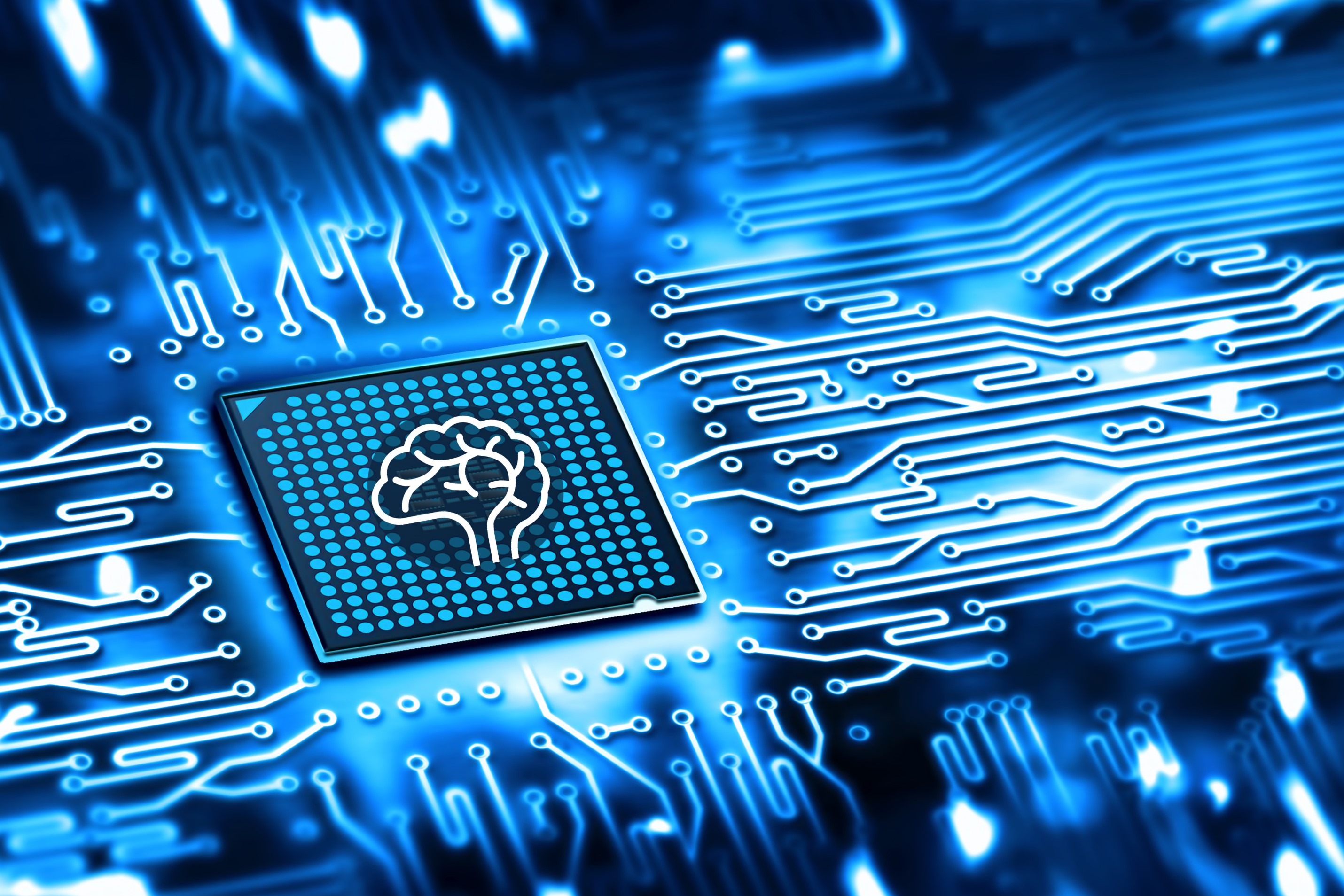High-performance microchips are essential for the successful use of artificial intelligence (AI). The EDAI project, coordinated at Karlsruhe Institute of Technology (KIT) and funded by Germany’s Federal Ministry of Education and Research, is taking a new approach. Its researchers are combining the design of AI algorithms with that of AI chips, so that hardware requirements such as energy efficiency, security and reliability can be provided for throughout the process. EDAI is based on open-source software to enable easier access to AI-based solutions, especially for small and medium-sized enterprises.
In chatbots, virtual assistants, smart home applications and navigation systems, we encounter artificial intelligence more and more often in everyday life. Many industries can benefit from AI, including the energy, medicine, automotive, machinery, marketing and logistics sectors. Developing suitable hardware, i.e. high-performance microchips, is essential for the successful use of AI. This will require high computing power, low costs, energy efficiency and, in particular, security and reliability. “Hardware development calls for special expertise because the development processes are considerably more complex than for software,” said Mehdi B. Tahoori, Professor of Dependable Nano Computing at KIT’s Institute of Computer Engineering. “But there’s a global shortage of hardware experts.” And licenses for state-of-the-art hardware development tools are extremely expensive. These challenges constitute high barriers, especially for small and medium-sized enterprises (SMEs).
Special Emphasis on Security and Safety
To facilitate the efficient development of AI chips and AI systems, the EDAI project (German Open-Source Tools for AI Algorithm-Hardware Co-Design) is taking a new approach. The researchers are combining the design of AI algorithms with that of AI chips. “We’re developing algorithm-hardware co-design tools, which combine the optimization of AI algorithms with exploration of the hardware design space while keeping the hardware requirements in mind throughout the process,” said Tahoori, who is the project’s spokesman. The project places a particular emphasis on security and safety criteria.
The software developed in the EDAI project is open-source. By using open-source software, the project aims to enlarge the community of AI chip developers and counteract the global shortage of skilled workers while also providing better access to AI-based solutions, especially for SMEs. As an important component of digitalization, AI presents an opportunity for SMEs in particular to exploit scientific insights and generate added value to gain competitive advantages.
Optimizing AI Hardware Architectures for Applications
By employing an automated design flow, EDAI aims to build a bridge between the optimization of AI models at the software level and their implementation in hardware. Project researchers are taking an algorithm-hardware co-design approach that optimizes AI algorithms by taking the hardware into account in advance. They are developing new templates for AI hardware architectures, which will be selected and optimized automatically to meet the requirements of the intended applications.
About EDAI
KIT is coordinating the EDAI project; its partners are the Technical University of Munich, FAU Erlangen-Nuremberg, and the University of Kaiserslautern-Landau. The project was launched on May 1, 2024, and is set to run for three years. The German Federal Ministry of Education and Research is funding the project in accordance with its “DE:Sign” (design tools for autonomous chip development with open source) guideline. The project has an overall budget of some three million euros.
The project consortium brings together internationally renowned AI and hardware experts from leading German universities and is committed to successful technology transfer to industry, especially to SMEs. Its aim is to establish a powerful and adaptable AI platform for German industry and for specific fields such as the automotive or industrial automation sectors, which will boost innovation, competitiveness and technological autonomy. “As the project coordinator, KIT is making Karlsruhe a development center for energy-efficient and trusted AI chips in Germany and Europe,” said project spokesman Tahoori.
Details about KIT Center Information · Systems · Technologies (KCIST)
In close partnership with society, KIT develops solutions for urgent challenges – from climate change, energy transition and sustainable use of natural resources to artificial intelligence, sovereignty and an aging population. As The University in the Helmholtz Association, KIT unites scientific excellence from insight to application-driven research under one roof – and is thus in a unique position to drive this transformation. As a University of Excellence, KIT offers its more than 10,000 employees and 22,800 students outstanding opportunities to shape a sustainable and resilient future. KIT – Science for Impact.

